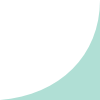Portrait
Who are the dedicated scientists that form Oncode Institute? Each quarter we put one of our researchers in the spotlight and focus on the person behind the science. In this edition we introduce Monika Wolkers. Find out what drives her and who inspires her.

Monika
Wolkers
Sanquin - Amsterdam
Monika Wolkers is a group leader at Sanquin and an associate professor at the University of Amsterdam. Sanquin is one of the four new institutes that joined Oncode in 2019 and Wolkers is one of the 19 new Oncode Investigators...



Science stole my heart in the third year of my PhD track
Monika Wolkers is a group leader at Sanquin and an associate professor at the University of Amsterdam. Sanquin is one of the four new institutes that joined Oncode in 2019 and Wolkers is one of the 19 new Oncode Investigators. Her group studies the role of T cells in our body’s anti-tumour response. “I think science stole my heart in the third year of my PhD track,” she says.

What was the most decisive moment in your career?
“I did my PhD in the group of Ton Schumacher at the NKI (Netherlands Cancer Institute). We were studying which antigens effectively induce T cell responses. Preliminary studies suggested that antigens were less likely to trigger T cells if they were only briefly presented on dendritic cells. We set up an experiment to test this idea and the results fitted our hypothesis perfectly. I must have repeated the experiment about forty times because the results seemed too good to be true. I will never forget sitting behind my computer, analysing the data, and showing the results to Ton. At that moment, I realized that I was truly contributing to the body of scientific knowledge.”

Did you want to become a scientist as a child?
“I did not specifically aspire to be a scientist. I grew up in Germany and went to the Netherlands to study abroad for one year. Having acquired the taste, I decided to stay and finish my Biomedical Sciences study here. While loving science, I was not fully convinced that I wanted a scientific career. So, I did a science journalism internship at the German public television. They invited me to stay for a paid job. However, I wanted to finish my Master’s degree first. One of my supervisors advised me to do my final internship at the NKI because of its top-notch science. After this internship, I was invited to stay for a PhD track. At that time, many career options were still open as far as I was concerned. But I realized that if I were to continue in science, the NKI was the place to be for a PhD student. I especially appreciated the freedom of thought there. With the years passing, I discovered how much I enjoyed unravelling the details of how the immune system functions. So, my love for science grew gradually, I suppose.”

Why did you choose to go for cancer research?
“To be honest, I actually tried to stay away from cancer research during most of my career. My father died of cancer when I was ten years old. So, cancer has been a very sensitive topic for a long time. I deliberately chose not to focus on cancer and I became an expert in immunology instead. By detour, I ended up in research that is relevant to infectious diseases and cancer.”
“To be honest, I actually tried to stay away from cancer research during most of my career. My father died of cancer when I was ten years old.

Who or what inspires you?
“My promoter Ton Schumacher has inspired me a lot. He taught me to apply high scientific standards and be open to unexpected results. Many other scientists inspire me as well, including my current directors, who live the example of how much fun science is. I also get a lot of energy from my enthusiastic team members and I enjoy seeing the PhD students growing. And collaboration is very important to me. Last year, I did a sabbatical at the EMBL in Heidelberg; this is a scientist’s Walhalla. EMBL is home to many clever scientists and it fosters a highly collaborative spirit. I think this is a very inspiring example of how science ought to be done.”

What frustrates you?
“As a starting scientist, I found it hard to obtain funding, despite the innovative character of my research. I really had to be persistent. As a result, my grant proposals improved step by step. I also found it hard to publish my results in high impact journals as a relatively unknown scientist. This is becoming easier now, but I think the scientific publishing process should be improved. In this context, I support the open science movement.”
I think each scientist has his or her own strengths and each strength contributes to scientific progress.

What distinguishes you from your peers?
“I think each scientist has his or her own strengths and each strength contributes to scientific progress. My own strength probably is daring to take big steps. For instance, I dived into a new topic around seven years ago: RNA biology. At the first RNA conferences that I joined, I did not understand much; I was back to being a student. But I have learnt to pursue what I find important. In the long run, this pays off. I think this is one of the great aspects of being an Oncode Investigator: it allows me to pursue bold ideas; ideas that are not yet fundable elsewhere. Oncode funding enables me to give it a try and test the validity of my ideas. It also allows me to hire talented people to validate our recent findings and test their broader applicability. The scientific freedom provided by Oncode is invaluable for me as it enables me to develop new targets and approaches.”

What do you want to achieve in the future?
“My main goal is to contribute to the body of knowledge. Nowadays, people sometimes forget the importance of basic knowledge. There will be no innovation without knowledge, so knowledge is the key word for me.”
